Learn: accidents can happen anytime — on a quiet street or at a busy intersection. One moment, everything is normal … and the next, someone may need help. It is good to know how to talk about such things in English as well. In this lesson, you’ll learn useful words and phrases that will help you to speak about road emergencies clearly and confidently. Let's learn some new vocabulary!
Revise: before we dig into the new vocabulary, let's revise body parts. You studied this in grade 2: My Body, My Face In grade 6 you learned about illnesses. Revise it here: Illnesses I, Illnesses II
Part 1: on the road, different kinds of accidents can happen, and different people can be involved — let’s learn the words to describe them.
Word bank:
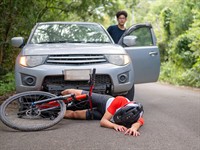
accident — [ˈæk.sɪ.dənt] — an unexpected event where people may get hurt; nelaimes gadījums
There was an accident near the school.
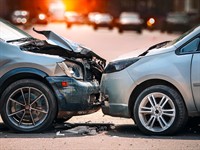
crash — [kræʃ] — when two vehicles hit each other; autoavārija
The crash involved two cars.
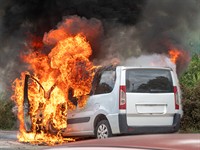
emergency — [ɪˈmɜː.dʒən.si] — a serious, dangerous situation needing quick help; neparedzēts / nelaimes gadījums
Call 112 in an emergency.
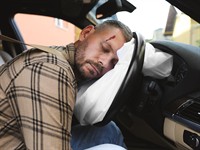
victim — [ˈvɪktɪm] — a person who has been attacked, injured or killed as the result of a crime, a disease, an accident, etc.; upuris, cietušais
The victim of the car accident was quickly taken to the hospital.
Part 2: when accidents happen, people can get hurt in different ways — let’s learn the words to describe common injuries.
Word bank:

condition — [kənˈdɪʃn] — the state of someone’s health, especially after an accident or illness; veselības stāvoklis
The victim’s condition was serious after the crash.
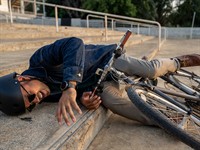
injury — [ˈɪn.dʒər.i] — physical damage to part of the body; ievainojums
The cyclist had a leg injury.
The cyclist had a leg injury.
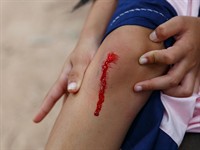
bleed — [ˈbliː.dɪŋ] — to loose blood; (no)asiņot
After falling off the bike, his knee started to bleed.
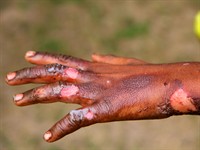
burn — [bɜːn] — a place where fire or heat has hurt or damaged something. If your face or skin burns or if something burns it, it feels very hot; apdegums, apdegt
The victim of the car accident had a burn from the fire. (noun) She burned her fingers while trying to remove a hot seatbelt after the crash. (verb)
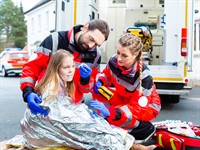
shock — [ʃɒk] — a serious condition after an accident (not just surprise); šoks
She was in shock and looked very pale after the firefighters pulled her out of a burning car.
She was in shock and looked very pale after the firefighters pulled her out of a burning car.
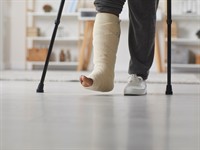
broken — [ˈbrəʊkən] — when a bone in the body is damaged and has a crack or is in pieces; lauzts
She has a broken leg after the bike accident.
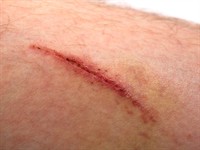
cut — [kʌt] — a break in the skin, usually made by something sharp; iegriezums, ievainojums
He had a small cut on his hand after falling off the bike.
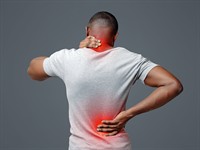
pain — [peɪn] — a feeling of physical suffering caused by injury or illness; sāpes
He felt strong pain in his back after the accident.
Part 3: when someone gets hurt, we need the right actions and equipment to help — let’s learn the words for them.
Word bank:
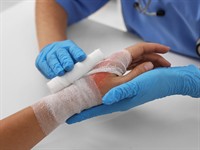
bandage — [ˈbæn.dɪdʒ] — a piece of cloth used to cover a wound; pārsējs, saite
The nurse put a bandage on his hand.
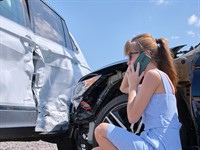
call for help — phone someone for medical or safety assistance; saukt palīdzību (parasti tas nozīmē zvanīt)
She called for help after the crash.
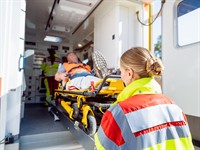
rescue — [ˈres.kjuː] — to help someone or something out of a dangerous, harmful, or unpleasant situation; izglābt
Paramedics rescued two people from the burning car.
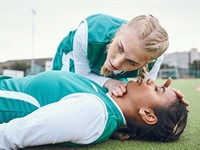
check — [tʃek] — to look at something carefully to make sure it is safe, correct, or working; pārbaudīt
The nurse checked the boy’s breathing after the crash.
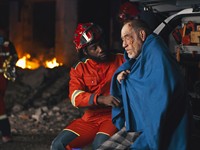
keep warm — [kiːp wɔːm] — to stay at a safe body temperature, especially when someone is cold, weak, or hurt. In accidents, helpers may cover the injured person with a blanket or jacket so they don’t get colder; turēt siltumā, lai saglabātu ķermeņa temperatūru
After the accident, they covered the old man with a blanket to keep him warm.
Read and listen to the dialogue about a car crash. Pay attention to the words and actions that show how people can help in an emergency.
Anna: Look, a car crash! That man is on the ground. Let's go! Maybe we need to help! — Skaties, tur ir autoavārija notikusi. Uz zemes guļ vīrietis. Ejam! Varbūt vajadzīga mūsu palīdzība.
Mark: Oh no, he looks very bad. I’ll call the ambulance right now. — Ak, nē, viņš izskatās ļoti slikti. Es izsaukšu ātro palīdzību.
Anna: Good. I’ll check if he is breathing. Can you hear me, sir? — Labi. Es pārbaudīšu, vai viņš elpo. Kungs, vai jūs mani dzirdat?
Mark: How is he? — Kā viņam ir?
Anna: He is not answering and he is barely breathing. The right leg looks broken. — Viņš neatbild un knapi elpo. Izskatās, ka labā kāja ir lauzta.
Mark: We must not move him. Let’s keep him warm until the ambulance comes. — Mēs nedrīkstam viņu kustināt. Līdz atbrauc ātrā palīdzība, turēsim viņu siltumā.
Anna: Yes, cover him with your jacket. Stay with me, sir. Help is on the way! — Jā, apsedz viņu ar savu jaku. Kungs, palieciet ar mani. Palīdzība ir ceļā!